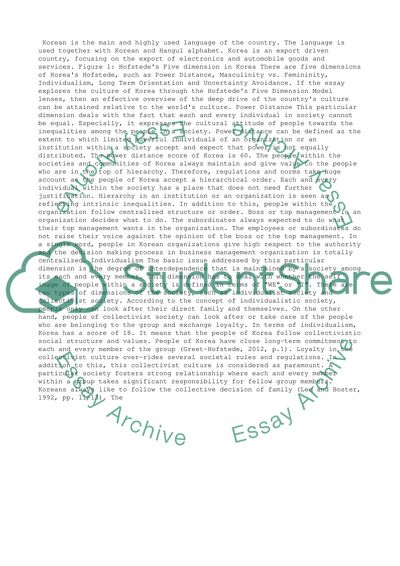Cite this document
(“Hofstede's dimension in Korea Essay Example | Topics and Well Written Essays - 1750 words”, n.d.)
Retrieved from https://studentshare.org/management/1486998-hofstede-s-dimension-in-korea
Retrieved from https://studentshare.org/management/1486998-hofstede-s-dimension-in-korea
(Hofstede'S Dimension in Korea Essay Example | Topics and Well Written Essays - 1750 Words)
https://studentshare.org/management/1486998-hofstede-s-dimension-in-korea.
https://studentshare.org/management/1486998-hofstede-s-dimension-in-korea.
“Hofstede'S Dimension in Korea Essay Example | Topics and Well Written Essays - 1750 Words”, n.d. https://studentshare.org/management/1486998-hofstede-s-dimension-in-korea.


